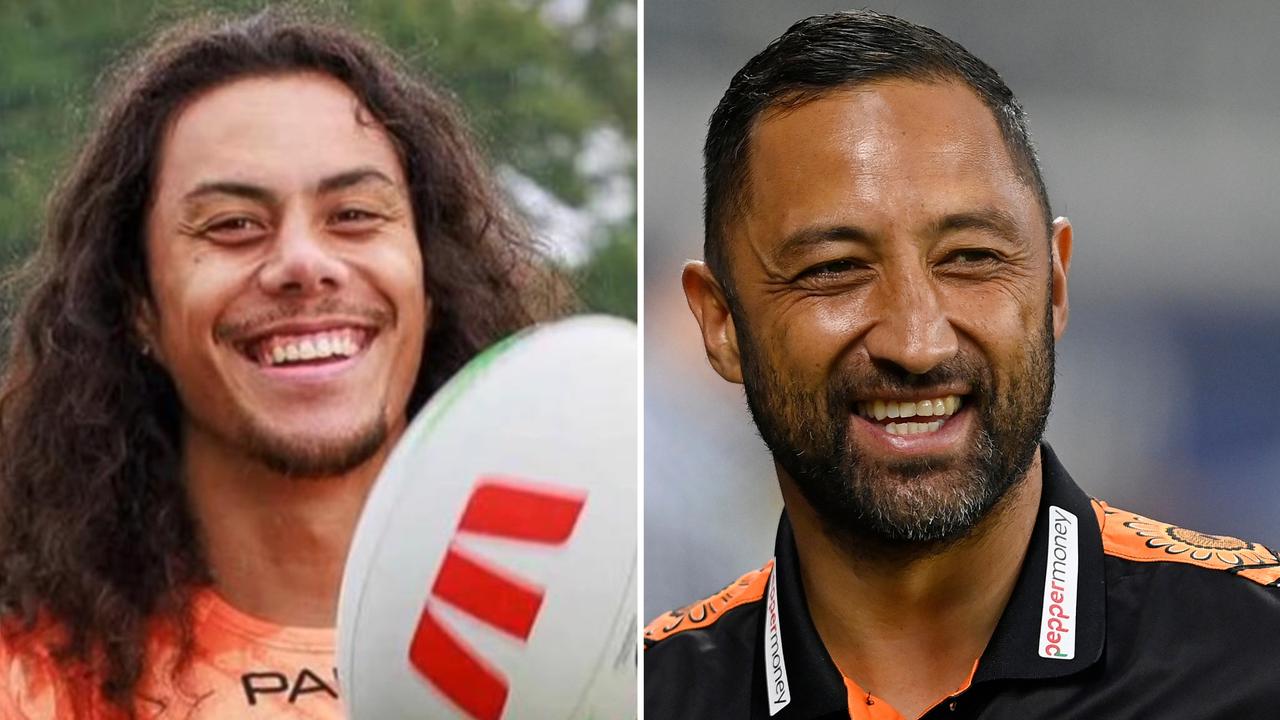The RLPA have failed the public on Jack de Belin case
Innocent until proven guilty in court, Jack de Belin deserves all the support he has from his club and teammates. But the RLPA’s stance shows how far off course the game is, writes PAUL KENT.
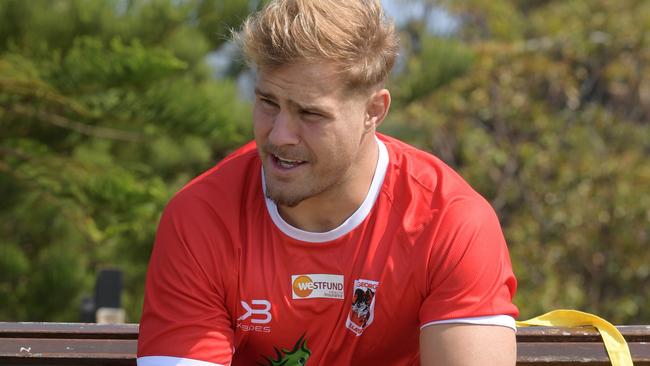
Opinion
Don't miss out on the headlines from Opinion. Followed categories will be added to My News.
Two inconvenient NRL truths emerged on Tuesday. Common sense and common decency were the themes.
The first came from Queensland Rugby League boss Bruce Hatcher, who can always be accused of deeper thinking.
Hatcher took to the Rugby League Players Association and their continual argument of the simplistic “innocent until proven guilty” defence. The phrase is trotted out in support of current benchmark, as if that is the full stop in any argument over players facing serious criminal charges. No further discussion entered in to.
Hatcher reminded the players they are now partners in the game.
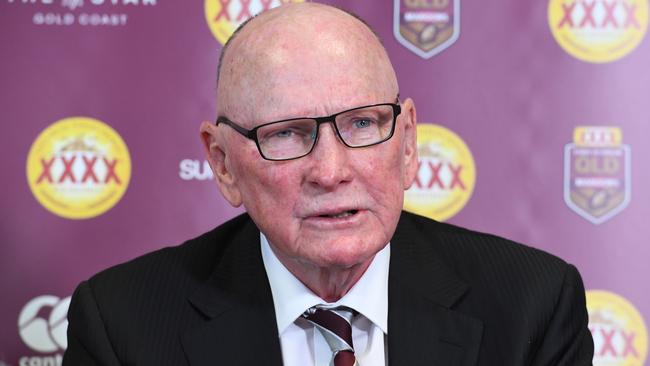
“They (the RLPA) should be taking a leadership role, not a counter punch role, saying, ‘You can’t do this to our players’,” Hatcher told The Courier Mail.
“They are accepted as a part of the ownership structure of the game, so behave like an owner and support some strong recommendations on how to deal with it.
“I don’t think they can keep saying they are looking after the player’s interests because when the sponsorships and revenue starts to disappear before their eyes, who are they going to blame? We should be on the one page.”
They can’t demand to be partners and take a share in the game’s profits and then remove themselves from all responsibility to grow it.
Too often in rugby league we get stuck in a narrative.
A line is spoken, support is found because it suits the purpose, so it quickly becomes the staple. Counter argument is either shot down or left to fade in the wind.
Too often, though, the convenient narrative becomes a crutch. A distraction for an ailing argument.
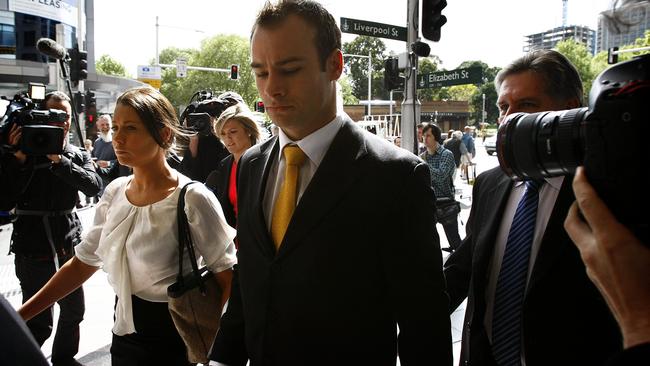
Many don’t have the time, the nous, or the inclination to consider the alternative argument.
The current narrative began when Brett Stewart was stood down on police charges shortly before the 2009 NRL season. Stewart was not just a player in 2009.
He and Greg Inglis launched the NRL season. The NRL was forced to pull all its television advertising and suffered untold embarrassment.
Stewart was later found not guilty in court, though. The narrative begun.
The NRL was overwhelmed by the outrage, unable to properly defend itself.
The convenient narrative got a toehold and its own justification, for suspending Stewart, faded in the wind.
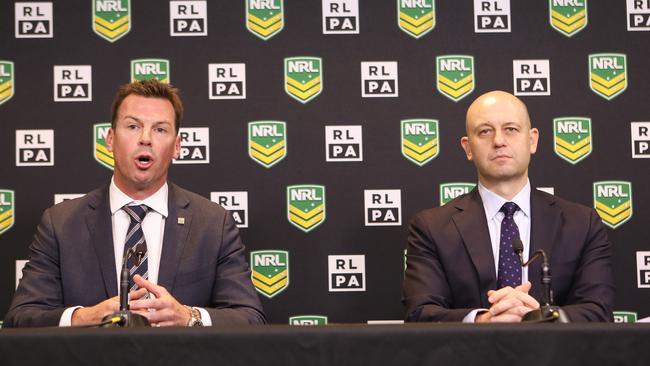
Unable to effectively argue against reputational damage, the NRL folded. An agreement was made to delay any punishment in future until after legal action was exhausted.
So the presumption of innocence, already accepted by everybody as a fundamental core of every charge, became the chief narrative.
It is trotted out as a reason the game should stay mute on a crisis that has more far reaching effects than just the player himself.
The fact a different threshold is required for a conviction in court, than a balance of probability when it comes to public reputation, is considered irrelevant among the players.
That’s what frustrates Hatcher.
A different threshold is required for commercial thresholds.
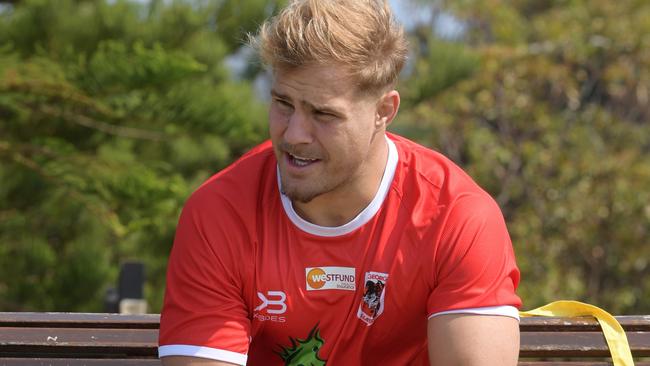
Hatcher would have to stand down as the boss of the QRL if he was on similar charges.
I would not be appearing on NRL360, writing for The Daily Telegraph, if I was on the same charges.
Even police are regularly suspended, on full pay, for charges regarded less serious than aggravated sexual assault.
It is a simple commercial reality. And it remains as simple as that.
Jack de Belin deserves and is receiving all consideration as he faces the serious charges against him. Financial support, counselling opportunities, and a solid backing from his workmates, which he is receiving.
But it is not all the players, as partners in the growth of the game, should be considering.

The commercial reality is far different. As partners, which they sought to be, they have an obligation to the commercial reality.
The current stance by the RLPA offends many women, the most important demographic to the NRL right now.
On Thursday, the Australian Rugby League Commission will hear evidence how the current legal system often tests the evidence, not the truth.
The Commission will hear of the financial and reputational damage the game has suffered, not just through the ream of charges over the summer but also the NRL’s failure to act quickly and decisively.
It should not be this hard.
“Looking at it as a whole,” Billy Slater said on Macquarie Sports Radio on Tuesday, “there are respect issues to be addressed but I don’t think the NRL can do any more than they’re doing in terms of education and the policies they put it place.”
Slater is in his first year of retirement. He is one of the few players to stray from the accepted narrative and speak of the broader issues the players must confront.
“I was educated when I was a kid. You know, this is a parent’s job. This isn’t an NRL job,” he said.
“When you grow up you get values and respect instilled in you and that’s where it all comes from.”
Here was common decency talking.
The Commission is determined to drive cultural change within clubs, and it begins on Thursday.
Paul Kent is an ambassador for Full Stop Foundation.
Originally published as The RLPA have failed the public on Jack de Belin case

